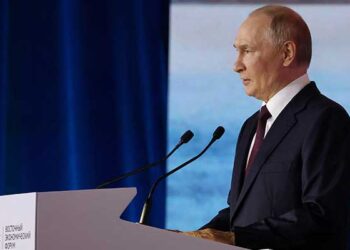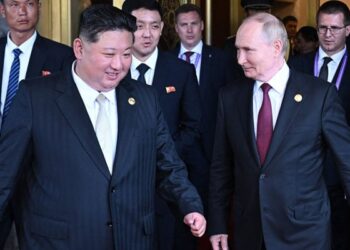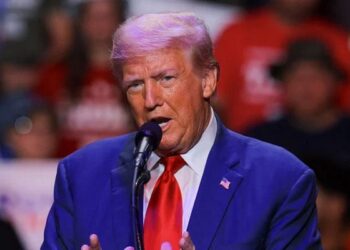Select Language:
On July 14, 2025, satellite images reveal oil pump jacks operating outside Almetyevsk in the Republic of Tatarstan, Russia.
In a recent call on Friday, G7 finance ministers deliberated on tightening sanctions against Russia and potentially imposing tariffs on nations they believe are “enabling” its conflict in Ukraine. The United States urged its allies to implement tariffs on countries buying Russian oil.
Canada’s Finance Minister, Francois-Philippe Champagne, led the meeting, which focused on adopting further measures to pressure Russia to cease its aggression in Ukraine. The ministers agreed to accelerate discussions about utilizing frozen Russian assets to support Ukraine’s defense efforts. The scope of possible economic measures was broad, including additional sanctions and trade tariffs on those facilitating Russia’s war.
During the call, U.S. Treasury Secretary Scott Bessent emphasized the importance of unifying efforts to impose tariffs on countries purchasing Russian oil, alongside U.S. Trade Representative Jamieson Greer. Both highlighted that only a concerted, collective approach can cut off revenue streams fueling Putin’s military campaigns and bring about an end to the conflict.
The ministers also expressed their commitment to increasing sanctions and exploring the potential use of immobilized Russian sovereign assets to aid Ukraine’s defense.
Earlier that day, a U.S. Treasury spokesperson urged G7 and EU allies to impose significant tariffs on goods from China and India to pressure them into stopping their purchases of Russian oil.
Former President Donald Trump has already imposed a 25% tariff on imports from India, aiming to pressure New Delhi to halt its imports of discounted Russian crude oil. This move raised total punitive tariffs on Indian goods to 50%, complicating trade negotiations between the two democracies. Conversely, Trump has held back from implementing additional tariffs on Chinese imports over their Russian oil purchases, as the U.S. seeks to maintain a delicate trade truce with Beijing.
Treasury officials plan to travel to Madrid for further discussions with China, including topics like trade relations, TikTok’s U.S. operations, and anti-money laundering efforts.
Earlier, Trump mentioned that his patience with Russian President Vladimir Putin is waning but warned he would not threaten new sanctions, despite expressing frustration over Putin’s failure to halt the war. Trump suggested that sanctions targeting Russian banks and oil could be effective but emphasized that European countries must also participate in these efforts.
“We’re going to have to come down very, very hard,” Trump stated.







